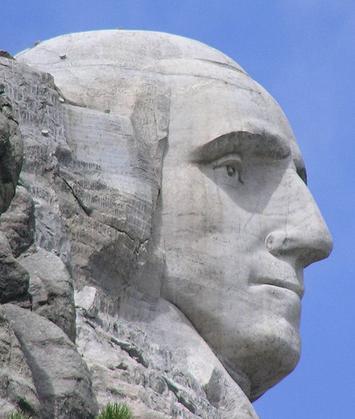
“They don’t know history, but they are making it. But what are they making?”
– Victor Serge, “The Conquered City,” 1932
In contrast to the physical sciences, and even other social sciences, the study of history is, by nature, subjective. There is no real mathematical formula to assess the past. It is more an art, or artifice, than a science.
Yet how we present and think of the past can shape our future as much as the statistics-laden studies of economists and other social scientists. Throughout recorded time, historians have reflected on the past to show the way to the future and suggest those values that we should embrace or, at other times, reject.
Today we are going through, at both the college and high school levels, a major, largely negative, reassessment of the American past. In some ways, this suggests parallels to the strategy of the Bolsheviks about whom Serge wrote. Under the communists, particularly in the Stalinist epoch, the past was twisted into a tale suited to the needs of the state and socialist ideology. This extended even to Bolshevik history, as Josef Stalin literally airbrushed his most hated rivals – notably Leon Trotsky, founder and people’s commissar of the Red Army – into historical oblivion.
Progressive Assault
In the modern reformulation, America – long celebrated as a beacon of enlightenment and justice – now is often presented as just another tyrannical racist and sexist state. The founding fathers, far from being constitutional geniuses, are dismissed as racist thugs and suitable targets of general opprobrium.
Initially, the progressive assault made some sense. Traditional “civics” education often presented American history in an overly airbrushed manner. Many of the nation’s worst abuses – the near-genocide of American Indians, slavery, discrimination against women, depredations against the working class and the environment – were often whitewashed. These shortcomings now have been substantially corrected in recent decades, from what I can see in my children’s textbooks.
Read the entire piece at The Orange County Register.
Joel Kotkin is executive editor of NewGeography.com and Roger Hobbs Distinguished Fellow in Urban Studies at Chapman University, and a member of the editorial board of the Orange County Register. He is also executive director of the Houston-based Center for Opportunity Urbanism. His newest book, The New Class Conflict is now available at Amazon and Telos Press. He is also author of The City: A Global History and The Next Hundred Million: America in 2050. He lives in Orange County, CA.
Photo by Scott Catron (User:Zaui) (Own work) [GFDL, CC-BY-SA-3.0 or CC BY 2.5], via Wikimedia Commons













My view, if I can put it
My view, if I can put it into words, is this: all civilizations have been guilty of terrible crimes, exploitations, aggressions, cruelties, etc.. What is different about the West, and America in particular, is that we have developed to a point that we can condemn practices that used to be accepted as a matter of course. How were we able to do that? In large part because servitude and exploitation are no longer necessary ingredients of a complex society. Thanks to the accumulation of capital we can now afford political and economic freedom, democracy, human rights.
But what is capital if not the accumulated crime and sacrifice of centuries, plus interest?
Other civilizations have nothing to show for their evil pasts. We in the West however managed to save and invest a part of it and thereby to redeem past crimes by turning them into present and future goods.
A terrible human price has been paid to build the modern world. We should never forget that. But neither should we squander what has been purchased so dearly. We have a sacred duty to pass it on and to try (as best we can) to redeem the rest of the world in the process. I write about this obliquely at the beginning and end of my post-Christian utopia: http://goo.gl/C4k2H7